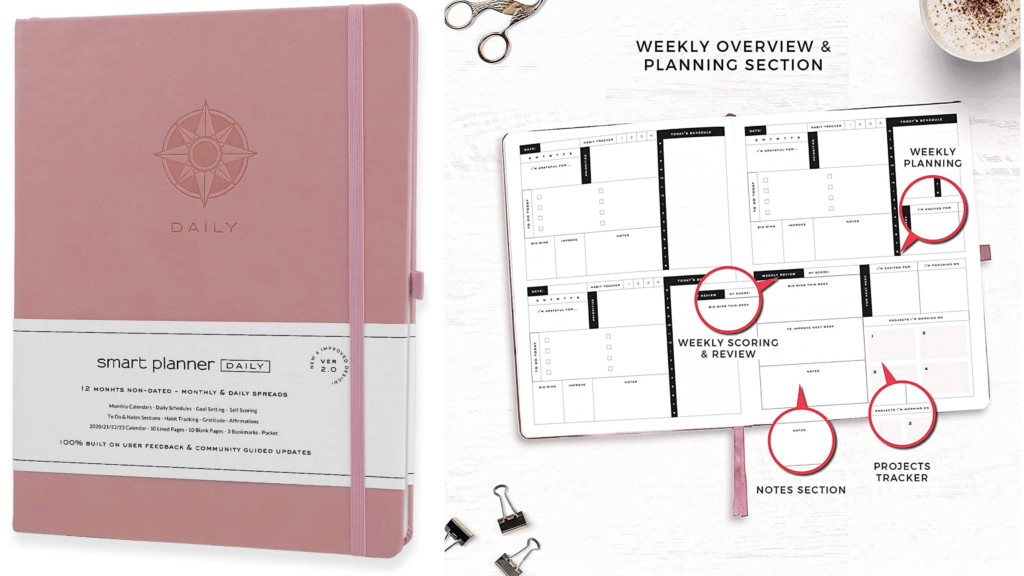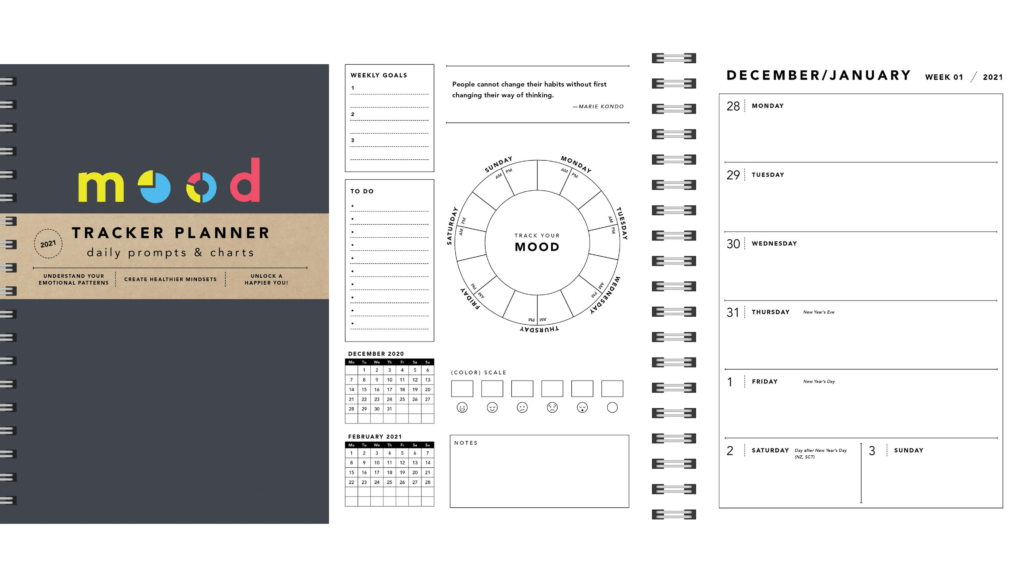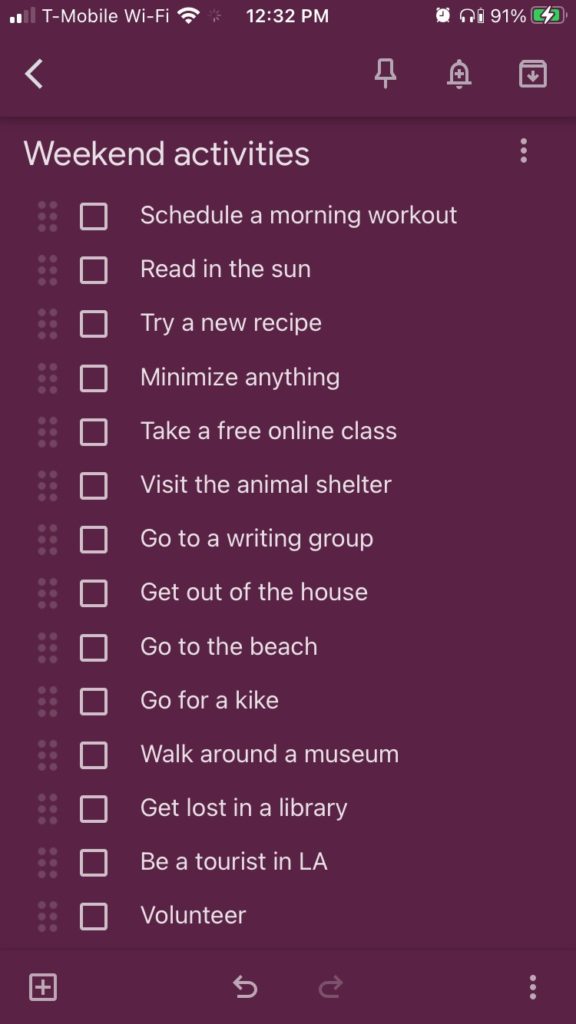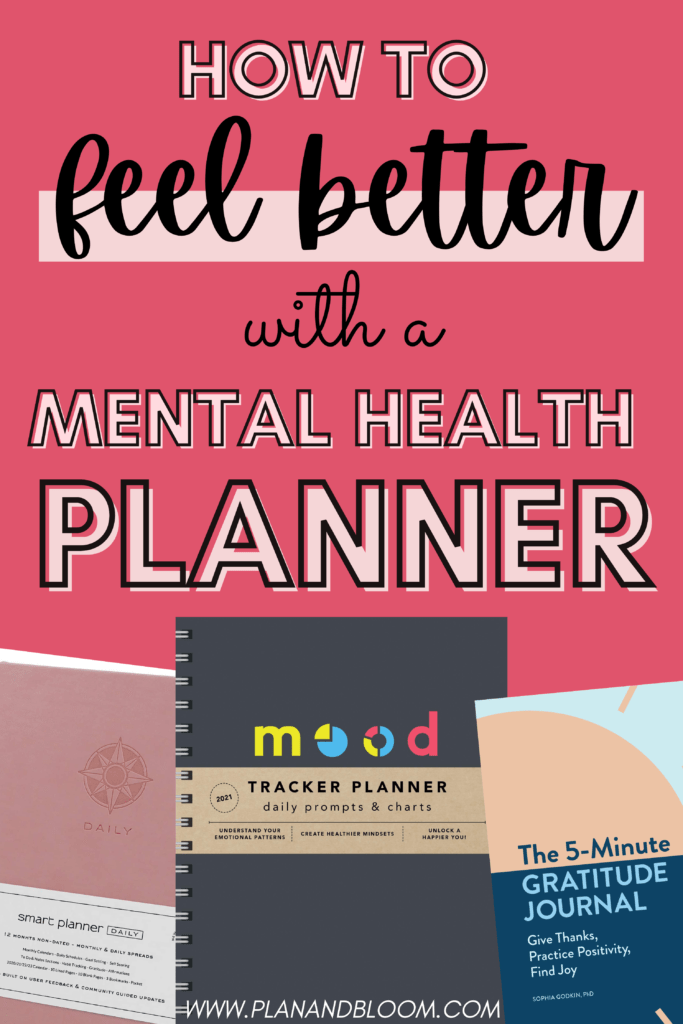If you haven’t tried using a planner, or more specifically a mental health planner, then I hope this inspires you to give it a go.
By the end of this post, you’ll understand how using a planner can help manage even the hardest down days. You will be armed with a handful of ways to try out using a planner to support you in dealing with your mental health, including a few options to try for the best planner for mental health in general, the best planner for depression, and the best planner for anxiety.
Table of Contents
Using a Mental Health Planner Can Relieve Your Stress
Using a planner is a way to take thoughts and worries, put them all in front of you, and start making a plan to address them. There are days where it feels like I’m sitting in the washing machine watching the rest of the world go on.
When I have those days where I’m overwhelmed, or feel untethered, or riddled with anxiety, it always helps to start writing down what I’m processing and what needs my attention first, what I can note down and save for later.
If I write it down, I don’t have to worry that I’ll forget about it.
It’s a way to put some structure to your thoughts instead of letting them make you feel overwhelmed. Sometimes it can make the stress lighten just by writing down an action step for later. You’re taking care of yourself by making sure that it stays on your radar.
Honestly, sometimes my favorite tool is a simple spiral notebook.

Using a Mental Health Planner Helps Be Accountable to Yourself
Planners can work to help you track things too. For example, if you’re trying to reach a goal noting every time you take a step towards that goal in your planner holds you accountable to ourself.
After all, there is no way to know if you’re hitting your goals if you don’t have the data to monitor your progress.
This can mean little things too. It doesn’t have to be a critical life-changing goal. It can be as simple as taking a 15-minute walk every day to get the blood flowing. Or it can be writing one positive affirmation every day for a week.
Starting with small goals is the way to go. Sometimes big hairy audacious goals can be overwhelming in themselves. Especially with those of us with depression and anxiety, starting small makes it doable. It’s the little things and the little wins that add up over time.
Here’s a smart goals planner that is super well organized and I love that it’s like a little book.

Permission to be Unproductive
We’re going to take a mid-post break here to say, “You have permission to be unproductive!”
Yes, it feels good to get stuff done and take steps to address what’s stressing us out or making us feel like crap. There are some days where you’re not going to get anything done and be plan unproductive. And that is perfectly normal too.
I had one of those days yesterday where I just knew I didn’t have it in me to be productive, so I decided it’s going to be a chill day. And today, I woke up ready to get my thoughts out and get back at it because I let myself have a relaxing day.
So today, I had a goal of writing a post. Even if it’s a small something, that’s okay. It feels so rewarding right now that I have the energy to be writing to get this goal checked off. And I get the same feeling from doing the dishes and tending to my plants.
Achievement can look like a lot of different things, and getting stuff done is always satisfying.
And you have permission to not be productive when you need to!

Track Your Mood
I used a mood tracker a couple of years ago when I was going through a tough few months managing depression. It helped me to identify better things that made my depression worse and what helped. For example, when I didn’t make an effort to eat healthily, my mood would go wonky real quick.
Using the mood tracker helped me to learn that I really can’t eat straight-up sugar. I have to eat it in moderation, and it helps me make sure I am eating some fats with it to help balance the sugar rush. I’m not sure that I would have recognized the correlation.
This mood tracker is inspiring me to try it again and I love that it’s a minimalist and clean design.

Keep Your Perspective
On bad days, sometimes I want to slap people when they say to keep perspective and remember all of the good things.
They don’t get that it doesn’t work that way when you’re in a depression hole.
However, I will say that I have tried writing down things I’m grateful for when I feel like nothing will ever be right again, and it has helped me remember that the feeling won’t last forever and that it will pass.
Here’s a nice option to try out for a gratitude journal. I like that it’s geared to only take five minutes out of your day.

Add Structure
Adding some structure to your day will do wonders for your mind. For me, what’s even worse than depression is the anxiety it causes. The most dreaded feeling I have is waking up on a weekend day with no plans when I’m in a state of fear. On regular days, there’s nothing I love more than waking up to a full weekend of no work and relaxation.
However, when anxiety is at the wheel, and I wake up with jolts in my chest, and panic from the get-go, the idea of an entire day with nothing scheduled can feel terrifying, like how will I fill all of those hours and I can’t wait until its night again. I keep a list of activities I can do on the weekend in my planner so that when in doubt, there’s always something easy for me to access and not think about.
You can keep a list wherever it’s easiest for you to access. But I keep mine in Google Keep. It’s always on my phone and syncs automatically. You can pin notes to the top and change the background colors which is fun. It also lets you add hyperlinks.
Here’s my list of go-to activities. Some of them are tricky during the pandemic of course, but most of them can still be done!

Also, I just compiled a list of 61 weekend activities to try when you don’t know what to do with yourself!
Conclusion
Now you have some ideas which mental health planners to try to start feeling better. There are so many options out there and these are just a few examples. I hope at least that this has inspired you to try using a mental health planner, whichever version works for you.
Do you use a planner to help with your mental health journey? Let me know if this post was helpful or if there are other planners or tools out there that I should add!

